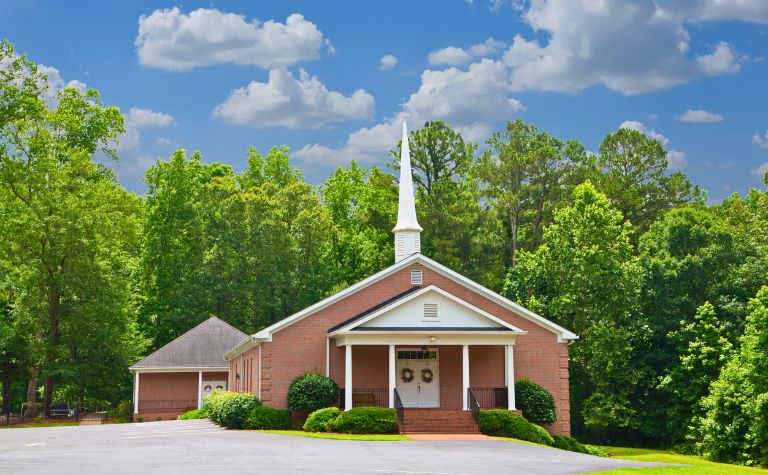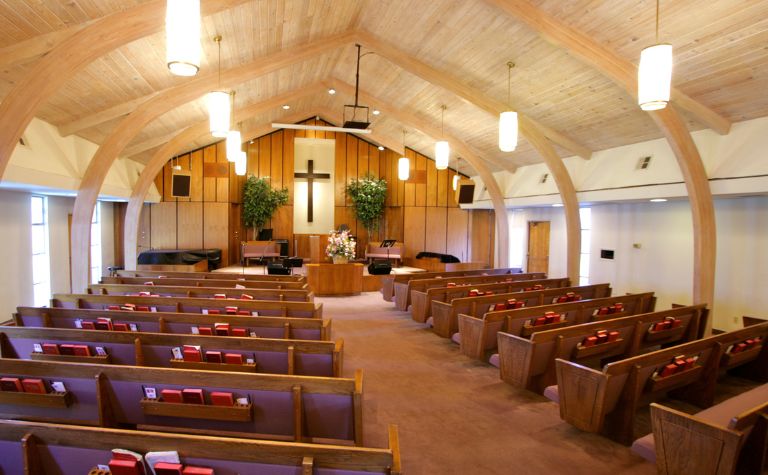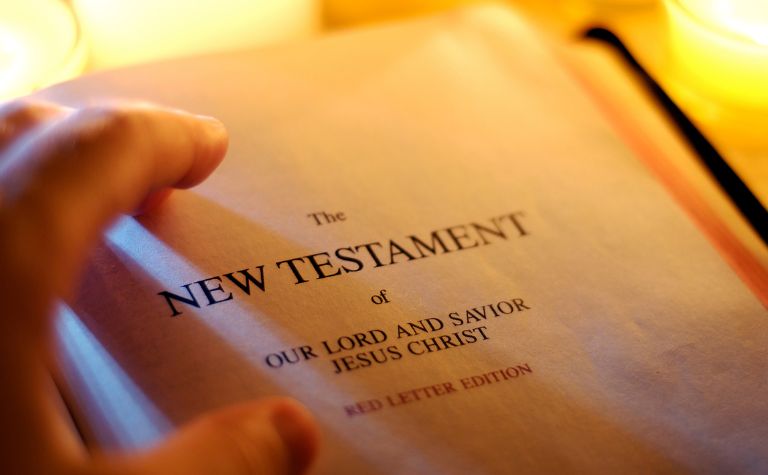Understanding the differences between Anglicanism and the Baptist denomination helps inform and clarify distinct theological perspectives and liturgical practices.
It also helps us understand history because both have their own important pasts that have influenced church structures and politics.
Lastly, it enriches cultural understanding, as each tradition has its own set of customs, rituals, and community dynamics.

Comparing Anglican and Baptist Traditions: An Overview
“Anglican” comes from the Latin “Anglicanus,” meaning “of England,” as it originated from the Church of England.
“Baptist” derives from the Greek word “baptizo,” meaning “to immerse” or “to dip,” highlighting the denomination’s emphasis on baptism by immersion as a key practice.
| Aspect | Anglicanism | Baptist |
|---|---|---|
| Name | Anglicanism | Baptist |
| Size | Approximately 85 million worldwide | Over 100 million worldwide |
| Date Started | 16th century | 17th century |
| Founder | King Henry VIII (as a distinct entity from the Roman Catholic Church) | John Smyth and Thomas Helwys |
| Key Beliefs | Apostolic succession, sacraments, Via Media (middle way between Protestantism and Catholicism) | Believer’s baptism, congregational governance, priesthood of all believers |
| Key Practices | Eucharist, liturgical worship, confirmation | Baptism by immersion, communion, congregational singing |
| Divisions | High Church, Low Church, Broad Church | Various (e.g., Southern Baptist, American Baptist, Independent Baptist) |
| Central Location | Canterbury, England (Church of England) | No central location; widespread globally |
| Sacred Texts | The Bible; The Book of Common Prayer | The Bible |
Who Were John Smyth and Thomas Helwys?
John Smyth and Thomas Helwys were early leaders in the Baptist tradition.
Smyth founded the first Baptist congregation, while Helwys took the movement to England and emphasized religious freedom.
Both played pivotal roles in shaping the core beliefs and practices of the Baptist denomination.
What is the high and low church in Anglicanism?
In the Anglican tradition, “high church” refers to worship styles and beliefs that closely resemble Catholic practices, including formal liturgy.
“Low church” leans more towards a Protestant approach, with simpler services and less emphasis on rituals. Both exist within the broader Anglican community.
What is the Book of Common Prayer?
The Book of Common Prayer is a guide used by Anglicans for worship and sacraments.
Established in the 16th century, it standardizes liturgical practices, containing prayers, readings, and rites for various services.
It has been revised multiple times and adapted by Anglican provinces worldwide.

Contrasting Anglican and Baptist Beliefs
In this section, we’ll compare the core beliefs of Anglicanism and the Baptist tradition.
While both traditions fall under the umbrella of Christianity, they have distinct views on key theological topics.
Understanding these differences can offer valuable insights into each tradition.
| Anglican Beliefs | Baptist Beliefs | |
|---|---|---|
| The Bible | Seen as authoritative but interpreted through tradition and reason | Seen as the ultimate authority in faith and practice |
| God | One God in three persons: Father, Son, Holy Spirit | One God in three persons: Father, Son, Holy Spirit |
| Jesus Christ | Fully God and fully man; Savior of humanity | Fully God and fully man; Savior of humanity |
| The Trinity | God exists as three persons in one essence | God exists as three persons in one essence |
| The Holy Spirit | Active in the church and individual lives; empowers sacraments | Active in the church and individual lives; empowers believers |
| The Atonement | Jesus’ death and resurrection provide salvation; sacraments also important | Jesus’ death and resurrection provide the only means of salvation |
| The Resurrection | Literal and bodily resurrection of Jesus; central to faith | Literal and bodily resurrection of Jesus; central to faith |
| View of the Church | Universal body of believers; hierarchical structure | Universal body of believers; congregational governance |
| Church Tradition | Important; includes creeds, liturgy, and church fathers | Less emphasis; Bible is the primary focus |
| Second Coming | Awaited but interpretations vary | Awaited and often emphasized |

Comparing Anglican and Baptist Practices
In this section, we’ll explore the main practices of both Anglicanism and the Baptist denomination.
Though rooted in Christian tradition, each has its own unique approach to worship, sacraments, and church governance.
Knowing these differences can help us better understand each group’s church life.
| Anglican Practices | Baptist Practices | |
|---|---|---|
| Worship Services | Liturgical services, often following the Book of Common Prayer | Less formal; emphasis on Bible teaching and hymns |
| Sacraments | Baptism and Eucharist (Communion) are central; also Confirmation, Ordination, Marriage, Confession, and Anointing of the Sick | Baptism and Communion; other practices vary by congregation |
| Prayer | Set prayers from the Book of Common Prayer; also personal and extemporaneous prayers | Personal and group prayers; often extemporaneous |
| Bible Reading | Lectionary-based readings in services; personal Bible study encouraged | Central to worship and personal devotion; emphasis on personal Bible study |
| Church Governance | Episcopalian structure (bishops, priests, deacons) | Congregational or led by elders/pastors; varies by church |
| Evangelism | Encouraged, but methods vary by parish and individual | Strong emphasis on personal evangelism and missions |
| Festivals & Celebrations | Observance of the Christian liturgical calendar, including Advent, Christmas, Lent, Easter, and Pentecost | Emphasis on major Christian holidays like Christmas and Easter; other observances vary |
10 Key Events in Anglican and Baptist History
In this section, we’ll take a look at the historical backgrounds of Anglicanism and the Baptist denomination.
Both have unique histories that have shaped their beliefs and practices over time.
Understanding these historical contexts can offer a deeper insight into each tradition.
| Anglican Events | Baptist Events |
|---|---|
| 1. Henry VIII’s break with the Roman Catholic Church (1534) | 1. Formation of the first Baptist church in Amsterdam (1609) |
| 2. Establishment of the Church of England (1534) | 2. Baptists arrive in America (1638) |
| 3. The Elizabethan Settlement (1559) | 3. The First London Baptist Confession of Faith (1644) |
| 4. The Book of Common Prayer’s first edition (1549) | 4. Formation of the Southern Baptist Convention (1845) |
| 5. The Oxford Movement (1833-1845) | 5. The Baptist Missionary Society founded (1792) |
| 6. The Lambeth Conferences begin (1867) | 6. The Landmark Movement (1850s) |
| 7. The ordination of women priests in the Church of England (1992) | 7. The Baptist Faith and Message statement (1925, revised 1963, 2000) |
| 8. The consecration of the first female bishop in the Anglican Communion (1989) | 8. The rise of the Baptist World Alliance (1905) |
| 9. The Anglican realignment due to disagreements on LGBTQ+ issues (21st century) | 9. The Conservative Resurgence in the Southern Baptist Convention (1970s-1990s) |
| 10. The Anglican Covenant proposal (2009) | 10. The “worship wars” over contemporary vs. traditional services (late 20th-21st century) |
Related Questions
Exploring the world's religions using the comparison charts below offers fascinating insights into cultures and beliefs. It opens doors to understanding human history, values, and...
Explore the rich diversity of Christian denominations. Learn how varied beliefs, practices, and traditions shape the Christian faith. Understanding these differences can deepen your insight into...
